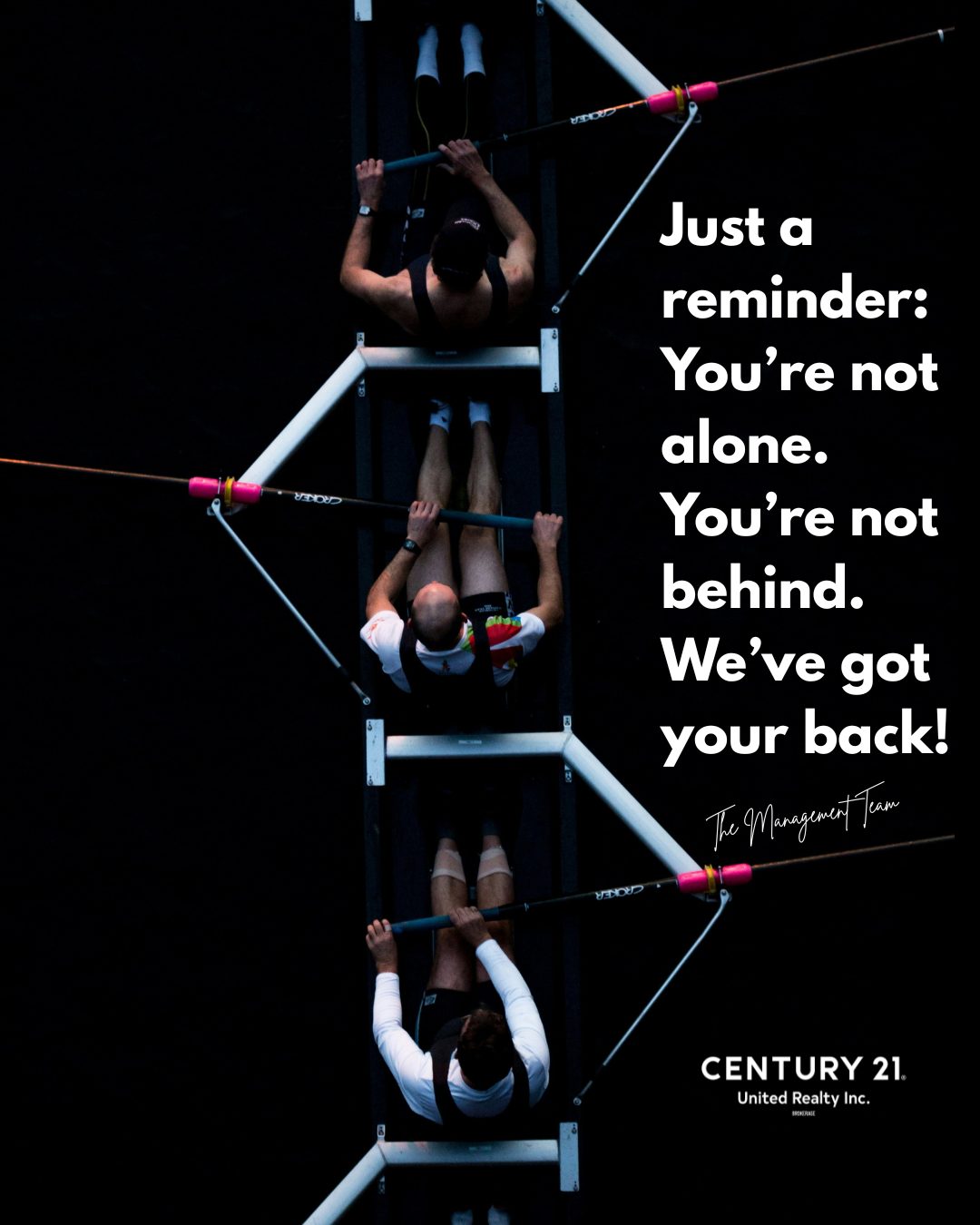Delegation for Solopreneurs: Escape the Trap

If you’ve been in real estate for any length of time, you’ve probably experienced the classic solopreneur trap. You’re juggling listing appointments, buyer calls, contract deadlines, marketing, database management, social posts, open houses, inspections…and that’s before lunch. By the end of the day, you feel like you’ve been running a marathon with a backpack full of bricks—and yet, the hits just keep coming.
Here’s the truth: this isn’t sustainable. You can’t scale, you can’t build a brand, and you certainly can’t maintain your sanity if you’re constantly in “reactive mode.” The good news? You can delegate, and you can do it intelligently, affordably, and without losing control of your business.
In my experience, I’ve never known an agent to intelligently hire an admin assistant who regretted it. Once they let go of the “I have to do everything myself” mindset, they gain clarity, energy, and the freedom to focus on what only they can do: building relationships, winning listings, and growing their brand.
The Solopreneur Dilemma
Let’s be real: being a solopreneur is exciting, but it’s also exhausting. You’re responsible for everything—from contracts to coffee runs, from scheduling showings to posting on Instagram. And the problem is, most agents never stop to ask:
Am I working on the business, or just in it?
The answer, most of the time, is the latter. You’re so busy putting out fires that the bigger picture—your brand, your growth, your strategy—gets neglected. That’s where delegation comes in.
Delegation isn’t just about offloading tasks; it’s about buying back your time for high-value activities. It’s about focusing your energy where it actually moves the needle in your business.
Why Agents Hesitate to Delegate
I hear it all the time:
- “I can’t afford it.”
- “I’ll just do it faster myself.”
- “I don’t trust anyone else to do it right.”
Sound familiar?
Here’s the reality:
- You can’t do everything and stay sane.
- Trying to do it all costs more than hiring help in the long run. Your time is worth money, and every hour you spend on repetitive tasks is an hour not spent closing a deal or finding new clients.
- Intelligent delegation is not about giving up control. It’s about putting systems in place, choosing the right people, and creating processes so you know the work is done well without having to micromanage.
The Delegation Mindset Shift
The first step in delegation is a mindset shift. It goes like this:
I am not the bottleneck. I am the business owner. My job is to generate value, not to be the only person capable of doing every single task.
When you embrace this mindset, delegation becomes a tool, not a compromise. You start seeing opportunities to free up hours of your week, reduce stress, and focus on activities that actually grow your business.
Think of it this way: the agents who grow fastest are not necessarily the busiest—they’re the ones who delegate wisely and invest their energy where it counts.
Affordable and Unconventional Ways to Delegate
You don’t have to hire a full-time assistant with benefits to start delegating. There are plenty of ways to offload tasks without breaking the bank:
1. Virtual Assistants
Virtual assistants (VAs) are a game-changer. They can handle tasks like:
- CRM updates
- Data entry
- Email management
- Scheduling appointments
- Basic marketing tasks (social posts, flyers, newsletters)
The beauty of a VA is flexibility. You only pay for the hours you need, and you can scale up or down as your business fluctuates.
Tip: Start with a small pilot project—say 5–10 hours. Give them one well-defined task and see how it goes. Most agents find that after a short training period, the VA becomes a trusted partner. If this test period doesn’t work, you can rapidly find another VA to test out and find someone you can work with. This creates flexibility because you’re working with gig workers and not hiring someone full time relieving you of the obligation to continue a less than ideal relationship.
2. Task-Based Freelancers
Sometimes you don’t need ongoing help—you just need someone for specific tasks. Freelancers can handle:
- Graphic design for social posts or listing materials
- Copywriting for email campaigns or newsletters
- Video editing for social media
- Photography or virtual tours
Websites like Upwork, Fiverr, and even local Facebook groups make it easy to find skilled freelancers. You pay per project, so there’s minimal risk, and the output often looks better than what you could produce alone.
3. Co-Working Collaborations
Here’s an unconventional idea: team up with other agents or small business owners in a barter-style system. For example:
- You handle marketing for another agent in exchange for them managing your listing paperwork.
- Share a part-time admin or intern between two businesses.
This approach reduces costs, builds relationships, and creates mutual accountability. Plus, having someone else involved adds a fresh perspective to your business.
4. Vendor Partnerships
Certain tasks don’t need an in-house employee—they need a reliable vendor. Think:
- Listing photographers
- Social media managers
- Cleaning or staging services
- Contractors and handy persons
Vendors let you delegate specialized tasks without worrying about payroll, benefits, or long-term contracts. The key is building relationships with vendors you trust—they become an extension of your team.
5. Automation and Systems
Not all delegation involves people. Automation can offload repetitive tasks and save hours each week:
- Set up drip email campaigns in your CRM to nurture leads automatically
- Use social scheduling tools to post content in advance
- Implement templates for offer letters, listing presentations, or client follow-ups
By systematizing the repetitive, you create space for high-value work. Automation + delegation = more time, less stress.
The Tasks You Must Keep vs. Delegate
It’s important to remember that not everything should, or can, be delegated. Your brand is your business, so anything that defines your personal touch, or carries a legal obligation to be done by a registrant, should stay with you:
- Listing presentations
- Buyer consultations
- Negotiations
- Relationship-building calls with key clients
Everything else? If someone else can handle it well, delegate it.
A simple litmus test:
If it doesn’t require my unique expertise or relationships, someone else can do it.
How to Start Delegating Without Overwhelm
Delegation itself can feel overwhelming if you try to do it all at once. Here’s a step-by-step approach:
- Make a list of everything you do in a week. Include admin tasks, marketing, database upkeep, errands—everything.
- Identify high-value vs. low-value tasks. High-value = tasks only you can do (selling, negotiating, consulting). Low-value = repetitive, time-consuming tasks.
- Pick one low-value task to delegate first. Don’t try to hand off everything at once. Start small.
- Create a clear process. Write down the steps for the task. The more detailed, the easier it is for someone else to handle it correctly.
- Train and monitor. The first few weeks will require oversight, but once the process is in place, you can step back.
- Celebrate the wins. Noticing that you have free time for strategic work is motivating and reinforces the habit of delegation.
Example
Let’s say you’re an agent named Alex. Alex was doing everything solo: answering emails, updating listings, posting to social media, calling leads, and even making copies for open houses. After one particularly exhausting month, Alex decided to delegate three tasks:
- Hire a VA for 10 hours/week to handle CRM updates and email follow-ups.
- Contract a freelance social media manager for weekly posts.
- Use a transaction coordinator for paperwork and contract deadlines.
Within a month:
- Alex had at least 6 extra hours per week.
- Listings went live faster, emails were answered promptly, and leads were nurtured consistently.
- Alex was calmer, focused, and able to spend more time building relationships and marketing her personal brand.
Result: revenue went up, stress went down, and Alex finally had energy to focus on what mattered most.
The Long-Term Benefits of Delegation
When you delegate effectively:
- Your brand grows faster. You have time for activities that position you as an expert in your market.
- Your energy lasts longer. Less fire-drill stress means you’re thinking strategically, not just reacting.
- You scale without burnout. Whether you eventually hire a full-time assistant or grow a team, you’ve learned the skills and mindset for intelligent delegation.
- You attract better clients. When your business runs smoothly, clients notice. They experience professionalism and attention that you simply can’t deliver if you’re constantly overextended.
At the End of the Day…
Solopreneurs often wear the badge of “I can do it all” with pride—but in reality, trying to do everything yourself is a trap. It limits growth, drains energy, and keeps you stuck in reactive mode.
Intelligent delegation isn’t just about offloading tasks. It’s about putting out fires so you can focus on your brand, your business, and your sanity. Start small, choose wisely, and remember: I’ve never seen an agent regret hiring an admin assistant when they did it intelligently.
The key is to see delegation as an investment, not an expense. Free yourself from the busywork. Build systems. Train the right people. Use vendors. Automate where you can. And then—finally—you’ll have the space and energy to focus on the work that actually grows your business.
Your future self—and your clients—will thank you.
Ready to learn more? Contact me and I’ll walk you through it!
One Call, One Text, One Post: Small Things You’ll Actually Do Every Day

If there’s one word I hear from agents more than any other, it’s this: overwhelmed.
Overwhelmed by the pressure to prospect.
Overwhelmed by the endless list of “shoulds.”
Overwhelmed by the feeling that you’ll never be caught up.
And let’s be honest—prospecting is usually the first thing that slips when you’re in that headspace. It feels big. Heavy. Like a mountain you don’t have the energy to climb.
But what if the mountain was actually just a series of small, easy steps?
That’s the power of daily wins. Little daily actions that are so small, you can’t talk yourself out of them. One call. One text. One social post. Do them consistently, and over time they stack up into something big.
Why Big Goals Fail (And Small Wins Work)
Here’s the classic trap: you set a huge goal like, “I’m going to make 30 calls a day.” And maybe you do it once or twice. But then you miss a day. Then two. Then you feel guilty. Then you stop altogether.
Sound familiar?
The problem isn’t you. It’s the size of the goal. When you set the bar too high, your brain starts whispering excuses: I don’t have time. I don’t feel like it. I’ll start fresh next week.
Small wins flip that script. By making the action so small it’s almost laughable, you bypass resistance. One call? Who can’t do that? And once you’ve done one, you often feel like doing more. That’s momentum.
The Compound Effect in Action
Think about it:
- One call a day = 5 calls a week = 20 calls a month = 240 calls a year.
- One text a day = 5 texts a week = 20 texts a month = 240 meaningful touches in a year.
- One social post a week = 52 opportunities for visibility in a year.
These aren’t huge numbers individually. But stack them up, and suddenly you’ve touched your database hundreds of times without ever burning out.
The compounding effect is real. Tiny actions, repeated consistently, beat sporadic big pushes every time.
How to Build a Micro-Habit Prospecting Routine
So how do you actually create one of these routines? Here’s a step-by-step:
1. Start Ridiculously Small
Forget 30 calls. Forget “I’m going to conquer my CRM.” Pick something so small you can’t possibly fail.
- One call.
- One text.
- One handwritten note.
That’s it.
2. Anchor It to Something You Already Do
Habits stick better when they’re attached to existing routines. For example:
- After I pour my morning coffee, I’ll send one text.
- Right before lunch, I’ll make one call.
- After I shut down my laptop for the day, I’ll write one note.
Anchoring gives your brain a trigger.
3. Track It (Visibly)
If there’s something I’ve been saying for literally years, it’s track and measure, track and measure, track and measure. There’s power in seeing progress. Keep a sticky note, whiteboard, or calendar where you check off each day’s micro-habit. Watching those checkmarks add up is motivating.
When you track and measure your progress improves. But if you track and measure and report that progress back to your coach, the rate of improvement accelerates. Think about that for a minute and then call me!
4. Scale Slowly
Once your one-call habit feels automatic, add another. Or add a second micro-habit. But don’t rush it. Think of it like weight training: you don’t walk into the gym and bench 300 pounds. You start light, build muscle, and increase over time.
5. Focus on Consistency, Not Intensity
The goal isn’t to do a ton in one day—it’s to never miss. One small action done daily will always outpace a massive burst followed by burnout.
What This Looks Like in Real Life
Let’s say you’re an agent named Sarah (fictional, of course).
- On Monday, Sarah sends one text: “Hey John, how’s the new deck coming along? I saw the pictures on Facebook—it looks great.”
- On Tuesday, she calls one past client: “Hi Mary, I was just thinking about you—how are things going in the new house?”
- On Wednesday, she writes a quick market update post for Facebook.
- On Thursday, she drops a handwritten note to a neighbor.
- On Friday, she sends another text: “Hey Alex, happy birthday! Hope you’re celebrating this weekend.”
That’s five touches. None of them took more than two minutes.
Fast forward 12 weeks. That’s 60 touches. Fast forward a year. That’s 240+ people reminded that Sarah cares, that Sarah’s in real estate, and that Sarah is their go-to person.
Did she spend hours cold calling strangers? No. She invested a few minutes each day.
The Psychology of Small Wins
Here’s why this works:
- Momentum beats motivation. Waiting to “feel like it” is a losing game. Small wins get you moving, and movement creates its own motivation.
- Progress reduces overwhelm. Instead of drowning in guilt about all the prospecting you haven’t done, you focus on the one action you can do today.
- Even very small wins build confidence. Every completed action is a victory; even a tiny victory is still a victory! Stack them up, and your confidence grows.
Common Pitfalls (and How to Avoid Them)
Like anything, micro-habits can derail if you’re not careful. Watch out for these:
- Thinking small means insignificant. Remember: it’s not about one text—it’s about 240 texts over time.
- Trying to add too many habits at once. Start with one. Get it nailed down before adding another.
- Beating yourself up if you miss a day. Missing one day is human. Missing two starts a pattern. Reset immediately and keep going.
Making It Fun
Let’s not forget: prospecting doesn’t have to feel like punishment. Practicing small wins let you personalize it.
- Love coffee? Make your “one text” part of your morning coffee ritual.
- Competitive? Challenge a colleague: who can keep their streak going longer?
- Visual? Create a “prospecting jar”—drop in a coin for every small activity you complete, and treat yourself when the jar’s full.
The more enjoyable it feels, the easier it sticks. Here’s what I did when I was new: Every time I made an appointment, I rewarded myself immediately with a few dollars to spend on anything I wanted. Often it was just a few dollars on milkshake or a new novel. But I knew that I had to stay motivated with something small or my momentum would falter.
A Challenge for You
Here’s your homework:
- Pick ONE tiny prospecting action you’ll commit to for the next 30 days.
- Anchor it to something you already do.
- Track it—visibly.
At the end of those 30 days, look back. Did it feel overwhelming? Or did it feel easy? More importantly—what results showed up that wouldn’t have otherwise?
I’ll bet you’ll be surprised by how much traction you get from something that seemed too small to matter.
Closing Thought
Prospecting doesn’t have to be a mountain. It doesn’t have to be overwhelming. It doesn’t have to drain you.
When you shift from “giant tasks I’ll never finish” to “small actions I can always do,” you flip the script. You go from paralyzed to productive. From overwhelm to output.
And in real estate, output means opportunity.
So tomorrow morning, don’t promise yourself 30 calls. Promise yourself one. Then keep that promise.
Do it again the next day. Then the next. And before long, you’ll look back and realize—you’ve built a business on the back of tiny, consistent actions.
Because the truth is: it’s not the big, flashy efforts that sustain you. It’s the little habits, done daily, that add up to the career you want.
When you’re ready to build a plan for your business that uses this style of building momentum, reach out to me and let’s work on it together!
Mind the Mindset: Turning ‘Quiet Weeks’ into Strategic Successes

If you’ve been in real estate for any length of time, you’ve probably had those weeks. The ones where the phone isn’t ringing, the inbox feels like a desert, and the deal pipeline looks suspiciously empty. At first, it’s a bit of a relief—finally, a breather after weeks of running around. But by day three, the silence starts to get loud. You check your CRM again, refresh your email, maybe even stare a little too long at the ceiling.
ringing, the inbox feels like a desert, and the deal pipeline looks suspiciously empty. At first, it’s a bit of a relief—finally, a breather after weeks of running around. But by day three, the silence starts to get loud. You check your CRM again, refresh your email, maybe even stare a little too long at the ceiling.
It’s tempting to think: Something’s wrong. I’m failing. This is bad news.
But here’s the reframe: those quiet weeks aren’t punishment. They’re opportunity.
The agents who thrive over the long haul aren’t the ones who never face slow periods—because let’s be honest, we all do. They’re the ones who know how to flip those gaps into growth. In other words, they mind their mindset and use the downtime to work on their business, not just in it.
So let’s talk about how to turn quiet weeks into strategy sessions that leave you stronger, sharper, and more prepared for the next wave of activity.
Why Quiet Weeks Feel So Uncomfortable
First, let’s acknowledge the elephant in the room: why do slow weeks mess with us so much?
Part of it is human nature. In real estate, we get addicted to busyness. We start to equate a packed schedule with success. When that schedule clears, it can feel like failure—or worse, like rejection.
But busyness isn’t the same as productivity. And constant activity isn’t the same as progress.
Think of it this way: top athletes don’t compete every day. They train. They rest. They study their game film. They prepare. Quiet weeks are our version of that training time. The question is—are you going to use them, or waste them?
Step One: Reframe the Silence
When the week feels slow, the first battle is in your head. You’ve got two options:
- Spiral: convince yourself that business has dried up forever, panic, and start doom-scrolling MLS listings for fun.
- Strategize: decide this is your window to strengthen the parts of your business that never get attention when you’re slammed.
Which one feels more productive? Which one sets you up for future wins?
Exactly. Do me a favour and say it louder for the folks in the back…
Four Big Buckets for Strategy Sessions
Now let’s get practical. Quiet weeks can be flipped into productive ones if you focus on four main buckets: planning, skill-building, content creation, and database cleanup. Each one is like a lever you can pull to build momentum.
1. Planning the Next Push
When you’re busy, planning feels like a luxury. You’re reacting, juggling, doing deals. But in the slower stretches, you’ve got the perfect chance to sit down and actually think: Where do I want my next deals to come from?
Start with the big picture:
- What’s your revenue goal for the next 90 days?
- How many transactions does that equal?
- Break it down even further—how many conversations, appointments, or listing presentations does it take to get there?
Then map it on a calendar. Don’t just hope that business will appear—decide what you’re going to do each week to make it happen. For example:
- Week 1: Call through your past client list.
- Week 2: Host an open house blitz.
- Week 3: Mail or drop flyers in your farm area.
- Week 4: Focus on social video content.
That’s one month of targeted activity—planned in advance.
You’ll be amazed how much calmer you feel when you’ve got a roadmap in front of you. Quiet weeks go from “dead space” to “setup time.”
2. Sharpening Your Skills
Here’s the truth: most agents stop practicing once they’ve been in the business for a while. They rely on experience. And yes, experience matters—but so does staying sharp.
A slow week is the perfect time to:
- Role-play objections with a colleague. How smooth is your response when someone says, “We want to wait for rates to drop”?
- Revisit your listing presentation. Pull it up and ask yourself: Would this wow me if I were the seller? Or does it feel dated?
- Watch a webinar, attend a training, or pick up an industry book. Even one golden nugget can refresh your perspective.
Think of it like going to the gym. You don’t wait until the big game to start lifting weights—you train when the stands are empty. Be careful though: practice doesn’t make perfect; perfect practice makes perfect. So be sure your practice is intentional and includes attention to detail and a desire for being the best you can be.
3. Content Creation That Pays Later
One of the biggest complaints I hear from agents is, “I don’t have time for prospecting or marketing when I’m busy.” Fair enough. But when you’re not busy? That’s your chance to build a content bank that will carry you through the next wave.
Some ideas:
- Draft three or four social posts that answer common client questions: “Should I buy before I sell?” “What’s a conditional offer?”
- Record a short video update on the local market—just you, your phone, and some authenticity.
- Write an email to your database with a helpful tip or story from the field.
The key here is batching. Do a handful of pieces in one sitting, save them, and you’ve just bought yourself consistency for weeks to come.
Future you will thank present you.
4. Database Deep-Clean
Let’s be honest: most CRMs are messier than we’d like to admit. Contacts with no notes, duplicate entries, leads from three years ago that never got updated.
A quiet week is CRM gold.
- Go through and update information. Did a past client move? Get married? Have kids?
- Add personal notes—schools, pets, hobbies, anything that will help you connect more authentically next time you reach out.
- Set up reminders for birthdays, anniversaries, or home purchase dates.
This is the unglamorous work that transforms “a list of names” into a real relationship pipeline. And those relationships? That’s where repeat business and referrals are born.
The Mindset That Makes It Work
Here’s the catch: none of this matters if you’re sitting in a mindset of defeat.
If you’re telling yourself, This quiet week means I’m failing, then you’ll procrastinate, avoid the hard work, and lose confidence.
But if you shift the question from, Why is it so slow right now? to What can I build right now that will pay off in 30, 60, or 90 days?—everything changes.
Quiet doesn’t equal empty. Quiet equals opportunity.
Stories from the Field
Let me share two quick contrasts I’ve seen over the years:
- Agent A hit a dry spell and decided to “wait it out.” They binge-watched Netflix, complained about the market, and told themselves business would come when it came. Three months later, they were still struggling to catch up.
- Agent B had the same dry spell but used it differently. They cleaned up their database, called 20 past clients just to check in, and scheduled coffee meetings with three referral partners. A month later, they had two listings and a buyer under contract—all from seeds they planted during the quiet.
Same market. Different mindset. Different results.
Action Plan: Your Quiet Week Blueprint
If you’re wondering how to actually implement this, here’s a simple formula you can use the next time your calendar clears:
- Pick one planning task – e.g., map out your next 90 days.
- Pick one skill task – e.g., practice a new objection handler.
- Pick one content task – e.g., draft three social posts.
- Pick one database task – e.g., update 10 contacts with fresh notes.
That’s it. Four focused activities. You don’t need to overhaul your whole business in a week—you just need to make consistent deposits.
The Long Game
Real estate is a long game. You don’t win by having a perfect week—you win by stacking week after week after week. Quiet ones, busy ones, and everything in between.
When you learn to use the slow weeks as strategy sessions, you start building a business that’s resilient, consistent, and growth-minded.
So the next time your phone isn’t ringing, resist the temptation to panic. Instead, grab your notebook, pull up your CRM, and ask yourself: What can I do this week that will make future me grateful?
Because the agents who thrive aren’t the ones who avoid the quiet. They’re the ones who turn the quiet into momentum.
Ready to learn how I can help you further your business? Reach out to me and let’s talk!
Why Defining Your Ideal Client Avatar Could Be the Smartest Move You Make This Year

Want to listen to a discussion about this post?
Click the Listen button!
Let me ask you something: are you marketing to everyone — and connecting with no one?
It’s one of the most common traps I see real estate agents fall into. They’re sending emails, running ads, making posts, talking to people... but somehow it’s just not clicking. Leads come in, sure. But they’re not the right ones. Or they’re cold, unmotivated, flaky, or not a good fit. And it’s frustrating, right?
Here’s the truth: when you try to speak to everyone, your message gets watered down. You become generic. Forgettable. And in real estate — where relationships and trust are everything — that just doesn’t work. Trying to speak to everyone actually has the opposite effect: No one will listen to you because your message will be too generic and uninteresting or uninspiring.
So what’s the fix?
You need to get crystal clear on who you actually want to work with — and build your business around that person.
That’s where your Ideal Client Avatar comes in.
What is an Ideal Client Avatar (and Why Should You Care)?
Your Ideal Client Avatar (ICA) is a detailed profile of the kind of person you’d love to work with every day — the type of client who not only needs your services, but gets you. They respect your time, they value your expertise, and they make you feel energized instead of drained.

And when your marketing, messaging, and services are built to attract that person, business gets a whole lot easier.
Instead of chasing down leads, you start attracting the right ones. You start having conversations with people who are already halfway sold — because they feel like you understand them.
The Benefits of Defining Your Ideal Client Avatar
Let’s break it down:
- Clarity – You know who you’re talking to, so you can tailor your messaging and avoid generic “one-size-fits-all” content.
- Efficiency – You stop wasting time on leads that go nowhere and spend more time nurturing real relationships.
- Better Fit – You attract clients who align with your style, values, and strengths — and who are more likely to refer you to others like them.
- Confidence – You become the go-to expert for a certain kind of client, which makes it easier to market yourself without feeling awkward or salesy.
Bottom line: this is about working smarter, not harder.
How to Build Your Ideal Client Avatar
This part doesn’t need to be complicated, but it does need to be specific. Think of it like designing a character in a movie. The more detailed, the better. You can even give them a name if you want — “Upsizing Sarah,” “First-Time Freddie,” “Investor Irene” — whatever helps you picture them clearly.
Here’s what to include:
1. Demographics
- Age range
- Marital status
- Kids? Pets?
- Occupation/income level
- Where do they live now, and where do they want to move?
2. Psychographics
- What do they care about most?
- What kind of lifestyle are they after?
- Are they security-minded? Trendy? Looking for peace and quiet?
- Are they nervous about the buying/selling process? Or confident and ready to act?
3. Buying or Selling Behavior
- First-timers who need lots of handholding?
- Downsizers who are emotionally attached to their current home?
- Investors who want fast, numbers-based answers?
4. Pain Points and Frustrations
- What’s stressing them out about buying or selling?
- What have they hated in past experiences?
- What do they wish their agent would do better?
5. Communication Style
- Do they prefer texts or phone calls?
- Are they spreadsheet lovers or visual learners?
- Do they want the big picture or all the little details?
If you’ve been in the business for any amount of time, look back at your best 3–5 past clients. What did they have in common? What made them easy (or fun) to work with?
That’s the foundation of your Ideal Client Avatar.
Putting Your ICA to Work in Your Business
Once you’ve defined your avatar, the real magic begins — you start building your business around that person. Here are a bunch of ways you can use your ICA to sharpen your marketing and attract more of the clients you actually want.
1. Tailor Your Messaging
Generic marketing sounds like this:
“Looking to buy or sell? Call me today!”
Targeted marketing sounds like this:
“If you’re a growing family thinking about trading up to a larger home before your next school year, I’ve got some advice that could save you a ton of hassle.”
See the difference?
When you understand what your ICA wants and worries about, you can speak directly to them. And when they hear or read your message, it’s like you’re reading their mind.
2. Create Content That Serves Them
Once you know your ICA’s biggest questions, struggles, and goals, you’ll never run out of content ideas.
Some examples:
- A first-time buyer avatar? Write a post: “5 Things Every First-Time Buyer Gets Wrong (And How to Avoid Them).”
- An investor avatar? Create a downloadable guide: “Where to Find the Best Cap Rates in Peterborough Right Now.”
- A downsizing couple? Film a short video tour of bungalows in 55+ communities.
This type of content positions you as the expert and builds trust long before you ever meet face-to-face.
3. Choose the Right Channels
If your ideal client is a 60-year-old retiree, they’re probably not hanging out on TikTok. If they’re a 35-year-old tech worker, they might not read flyers or answer their phone.
Knowing where your ICA hangs out is just as important as what you say.
Examples:
- Use Facebook and in-person seminars for retirees.
- Use Instagram and YouTube for first-time buyers.
- Use LinkedIn and email for professionals or investors.
4. Build Your Website for Them
Look at your website with fresh eyes: is it built for your ideal client?
- Are the photos, testimonials, and listings geared toward the types of homes they’re interested in?
- Are the calls to action (CTA) speaking their language? (e.g., “Get Your First-Time Buyer Checklist” vs. “Book a Downsizing Strategy Call”)
- Are the blog posts and videos useful to them? Yes, I said blog posts - you’re reading one right now!
If not, it’s time to update it.
5. Run Targeted Ads
Platforms like Facebook and Google Ads let you get extremely specific with your targeting.
Once you know your ICA, you can target by:
- Age
- Location
- Income bracket
- Life stage (recently married, new parents, recently moved)
And instead of spending money on ads that “might” work, you’re putting your budget in front of the exact people you want to attract.
6. Develop Referral Relationships
If you know your ideal client, you also know who else they’re likely working with.
- Are they newlyweds working with wedding planners?
- Are they older adults meeting with estate planners or financial advisors?
- Are they busy professionals hiring organizers or cleaners?
Build relationships with those professionals. They can be excellent referral sources because you’re both serving the same client — just in different ways.
7. Keep Refining as You Grow
One last tip: your ICA isn’t carved in stone.
As your business grows, your ideal client may shift. That’s normal.
Maybe you used to love working with first-time buyers, but now you're more drawn to higher-end listings. Or maybe the market has changed and opened up a niche you’re unexpectedly good at serving.
Revisit your ICA every 6–12 months and ask:
- Am I still enjoying these clients?
- Are they profitable?
- Are there any patterns or changes I need to adjust for?
Clarity Creates Confidence
When you stop trying to be all things to all people, and instead focus on being exactly right for a specific kind of client — everything changes.
Your marketing gets clearer. Your sales process gets smoother. And your clients feel like they’ve finally found the agent who “just gets them.”
So here’s your homework: Look at your last five favorite clients. What did they have in common? Start sketching your Ideal Client Avatar from there.
And if you’re not sure where to start or want help refining it, reach out — this is one of those small shifts that can unlock serious momentum in your business.
Detach From the Outcome. Do the Work.

Let’s have a real conversation today—the kind that doesn’t get wrapped in a bow or delivered with soft edges. If you’re a producing agent who’s feeling stuck, if the deals have slowed and your stress has climbed, I want you to hear this clearly:
You’ve stopped doing the work that got you here.
You’re not alone. I see it all the time with mid-to-high level agents. You built momentum, got a few years of success under your belt, and now you’re waking up checking your bank account and worrying more about your next commission than you are about the habits that created your early success in the first place.
This is where the plateau shows up. Not because the market is against you, not because your CRM is broken, not because your leads are garbage—but because you’re staring at the scoreboard instead of playing the game.
Let’s fix that.
Fall In Love With the Process
I know you’ve heard this before. Maybe you’ve even said it to other agents. But I’m going to ask you to live it:
Fall in love with the process.
You want consistent cheques? You want to build something real and reliable? Then you’ve got to stop chasing the payout and start chasing the process. The day-to-day. The repetition. The unsexy, routine stuff you used to do without thinking.
Success isn’t magical. It’s mechanical.
If you’ve ever worked out with any consistency, you know exactly what I mean. Nobody gets excited about their 60th pushup or their fifth early morning gym session of the week. But those reps—those are the ones that change your body.
Your business is the same. The daily grind is what builds the muscle. And right now, some of you have stopped training.
Detach From the Outcome
Here’s where it gets real. You’re making calls or hosting an open house or posting to social media… but you’re doing it with one eye on the result. And because the result doesn’t always show up on your timeline, you start pulling back. You start doubting the process.
That’s backwards.
You need to detach from the outcome. Let go of what happens after the action and focus on doing the thing. Make the call because it’s what professionals do. Post the content because it builds brand, not because it gets likes. Knock on the door because that’s your job, not because you expect a listing on the spot.
If you need the result to feel good about the effort, you’re going to burn out or break down.
The results will come. But not when you chase them. They come when you consistently do the right things—over and over—regardless of whether they pay off immediately.
The Sales Are the Result, Not the Focus
Read that again.
The sales are the result. Not the focus.
Would you ever plant a seed and then dig it up every 12 hours to see if it’s growing? No, you’d water it. Give it sun. Be patient. Trust the process.
Same thing here. Stop checking your inbox hoping something’s landed. Stop obsessively calculating your pipeline every morning. Your job isn’t to count the harvest. Your job is to sow the field.
Where You’ve Likely Slipped
If you’re feeling called out right now, good. That means we’re getting somewhere.
Here’s where I often see solid agents falling short:
- Inconsistent prospecting: You used to time-block. Now you wing it.
- No database follow-up: You assume your past clients will call you. They won’t.
- Avoiding outbound efforts: You used to call FSBOs or knock on doors. Now you scroll social media and call it “marketing.”
- Letting mood dictate effort: If you feel “off,” your work disappears. But feelings aren’t facts. Get it done anyway.
- Waiting for perfection: You delay videos, emails, or farming campaigns until everything is “just right.” Stop. Publish it.
You don’t need a new strategy. You need to re-commit to the basics.
How to Get Back On Track
Here’s the antidote to outcome-obsession:
1. Track Activities, Not Results
Start counting the number of calls, conversations, follow-ups, handwritten notes—whatever actions drive your business. Get serious about tracking about the numbers you control.
2. Time-Block Like Your Income Depends on It
Because it does. You don’t get paid for being busy. You get paid for doing the work that matters, on purpose.
3. Set Process Goals
Instead of “I want 3 listings this month,” try:
“I will make 100 prospecting calls this month”
“I will visit 10 past clients”
“I will post 12 pieces of value-driven content”
4. Create Accountability
Coaches, accountability partners, even a whiteboard on your wall—whatever it takes. Don’t rely on motivation. Build structure.
5. Expect Nothing. Respect Everything.
Every “no” is part of the job. Every silence is normal. Every rejection builds resilience. Expect nothing from the action and everything from the consistency.
This is a Mindset Shift. Not a Tactic.
Some of you are looking for the magic phrase to say in a listing presentation. Or the perfect subject line for an email. And those things matter… but only after your mindset is dialed in.
If you don’t believe in the work, you won’t do it.
Your business isn’t broken. Your headspace is. And that’s good news, because you can fix that faster than you can fix a slow market or a dry referral stream.
Final Thought: You Can Do This. But You Have to Want It.
If this post stings a little, let it. That’s the sting of truth. But there’s something even better on the other side of it.
Because when you detach from the outcome, fall in love with the process, and get committed to your routines, the results take care of themselves. Not overnight—but in time. Always.
You’ve already proven that you can succeed. Now it’s time to prove you can sustain.
And if you’re ready to level up and build a business that’s consistent, scalable, and yours—then reach out. That’s what I do. I help agents reconnect to the work, rebuild their systems, and grow with intention.
Let’s get you back to building the business you actually want.
We See You: Building a Brokerage That Cares

In today’s real estate world, it’s easy to focus on numbers. Listings, deals, closings, commissions—they’re the lifeblood of our industry. But if there’s one thing we’ve learned from the last few years, it’s that numbers alone don’t sustain a thriving real estate business. People do. And that means putting our agents first, not just as professionals, but as human beings.

Our industry is full of high achievers. People who pride themselves on being self-starters, on pushing through, on never letting anyone see them sweat. But beneath the surface, many of our agents are struggling. With uncertainty in the market, global instability, and the ever-present pressure to perform, it’s no surprise that stress and burnout are at an all-time high.
This isn’t just anecdotal. I hear it directly from agents in our coaching sessions and in the hallways of the office.
More importantly, I feel it in the room. The tension. The worry. The sheer emotional load that many of our people are carrying. It’s not unlike the early days of the COVID-19 pandemic—that same sense of disorientation, isolation, and collective anxiety. So when I hear that leaders of provinces and states are treating this time as one of heightened emotional care, and when grief counselors say we’re in another wave of widespread coping and actual greiving, it resonates.
Deeply.
The question for us, as real estate leaders, is simple: what are we doing about it?
To me, this isn’t just a moral obligation—though it absolutely is that. It’s also smart business. Agents who feel heard, understood, and supported stay longer, produce more consistently, and contribute to a healthier, more positive culture. When we show up for our people, they show up for their clients.
And so, we’ve made a clear commitment in our brokerage: to actively prioritize our agents’ mental and emotional well-being. Not as a one-off initiative, not as a buzzword, but as a central part of our culture. We are asking ourselves daily how we can be more present, more thoughtful, and more helpful to our agents.
This means more than just having an open door. It means listening deeply. It means recognizing that performance isn’t always a reflection of potential, and that sometimes what an agent needs most is someone to simply check in. It means taking the time to build relationships, not just track results. You can feel this when you come to my office, or Vanessa’s, or Andrew’s – we don’t dismiss anyone; we want to know how you, the person, is feeling and coping with today’s realities.
While we’ve always kept the wellbeing of our people at the forefront of what we do every day, we like to behave as though we’re in the early stages of shaping how this will look within our company. Our intention is clear: to build a brokerage where agents feel truly supported. Where leadership is approachable. Where vulnerability isn’t punished, but respected. Where it’s okay not to have all the answers, and where asking for help is a sign of strength.
We are exploring tools and touchpoints that help foster connection. We’re looking at better ways to create safe spaces for conversation. We’re talking about how we can bring mental health resources to the forefront. We’re asking our agents what they need, and then listening without judgment.
What have we done so far?
- Brought in outside speakers to learn about anxiety and how to deal with it over time
- Host monthly sessions that we call Coffee Lab. Agent driven sessions where you get to talk about whatever is on your mind and learn from each other
- Facilitate Mastermind sessions where we not only talk about best practices but we also dig into what keeps your motivated and fulfilled
- Numerous team building events including our ever-popular Mystery Tours, Awards Nights, and Summer Parties
- Our doors are always open – you need something from a member of management – we try our best to be available, even after hours
- Provide one on one coaching for any and all agents, no matter what level they are at in their careers. If you’ve taken advantage of this, you know that it’s part business coaching, and a lot of life coaching! The number of people that have wondered aloud why I don’t have a stereotypical psychiatrist’s ‘couch’ in my office would astound you!
More than anything, we’re committed to leading with humanity. We understand that the success of our business isn’t just about productivity. It’s about people. And if our people are struggling, we’re not succeeding.
So no, we don’t have all the programs in place yet. But we’re starting with what matters most: intention, attention, and heart.
If you’re part of our brokerage, know this: we see you. We hear you. And we are building this with you, not for you. We want your input, your experiences, and your ideas to shape how we move forward.
Because when we prioritize people over pressure, connection over competition, and support over silence, we all rise.
Let’s make this more than a business. Let’s make it a community that truly has each other’s backs.
That’s the kind of brokerage I want to be a part of.
And I think our agents do too.
Your New Job: Become a Motivated People Magnet

In a recent post, I talked about the need to get more focused in your efforts; to become a motivated people magnet. I thought that idea deserved more attention – and some actionable advice for agents looking to ‘up their game’ right now. Here is the result…
In this market, your job isn’t to “sell” — it’s to sift.
If you’re still trying to convince people it’s a great time to buy or sell, I have some bad news: you’re wasting your energy.
Your real job is to find the people who have to move — the ones whose lives are moving them — and spend your time there.
That’s the skill that will separate the agents who survive this market from the ones who don’t.
Stop Trying to Convince — Start Listening for Life
You can’t sell motivation to someone who doesn’t have it. No clever marketing piece or charming phone call is going to make someone have a baby, get divorced, get transferred, or retire. Those things happen when they happen — with or without you.
Your role is to spot these life shifts early and be the trusted advisor when the time comes.
When you really get this, everything in your business changes.
- You stop chasing every curious person who clicked on a listing.
- You stop trying to “sell” people who aren’t ready.
- You start spending time where the real opportunities are.
Sounds good, right? Let’s talk about how to do it.
Step 1: Reconnect With Your Database — the Right Way
Your database is a goldmine, but only if you treat it properly. It’s not enough to send another “market update” email and hope someone bites. You need conversations — real ones — and you need to ask the right questions.
Here’s a better approach:
- Warm up the call
Start easy. Nobody wants to feel like they’re being pounced on.
- “Hey, it’s been a while — how’s life treating you?”
- “I was thinking about you the other day and figured I’d check in.”
Simple, human, real.
- Ask Life-Centered Questions
Shift away from “Are you thinking of buying or selling?” to:
- “Any big changes happening in your family these days?”
- “Are you still loving the house/neighborhood you’re in?”
- “Have you thought about downsizing now that the kids are getting older?”
- “Is work keeping you local, or is there a chance you might be transferred?”
Listen for:
- Expansion: New babies, blended families, working from home.
- Contraction: Empty nesters, divorces, retirements.
- Relocation: Job transfers, new opportunities, moving closer to family.
You’re not digging for leads — you’re listening for life.
- Don’t Make It About You
You’re not there to get something. You’re there to understand what’s happening in their life. When you do this well, you become the obvious choice when a move becomes necessary.
Important:
Even if there’s no opportunity right now, you’ve deepened the relationship — and those referrals will come.
Step 2: Sort Fast and Sort Honestly
Once you start reconnecting, you’re going to hear three types of people:
- Ready Now:
- “We’re having another baby, and this house is too small.”
- “I’m getting divorced, and I need a new place.”
Action to take: Move these people to the top of your list and book meetings.
- Not Yet, But Something’s Brewing:
- “We’re thinking about retiring in a year or two.”
- “If work keeps pushing me into the office, we might move closer.”
Action to take: Set a reminder to check back in a few months. Stay lightly engaged.
- Window Shoppers and Tire Kickers:
- “We’re just curious what the market’s doing.”
- “We’re staying put unless something amazing pops up.”
Action to take: Love them, but don’t chase them. Put them on a market watch drip and move on. You don’t have time to drag anchors around.
Pro Tip: Spend 80% of your time with the first group. The rest get good service, but not your prime hours.
Step 3: Partner With the Right Allies
You can only have so many direct conversations yourself. That’s why smart agents build networks with the people who see life changes first.
Start making friends with:
- Divorce lawyers
- Estate lawyers
- Financial planners
- Mortgage brokers
- Insurance agents
- HR departments at large companies
- Senior living advisors
What’s the strategy?
- Let them know you’re a resource.
- Educate them about what you do — not just “sell houses,” but help people navigate big life changes.
- Stay in touch. Add value where you can. (Share articles, offer insights, send coffee — whatever fits.)
Warning: This isn’t an overnight thing. It’s a long game — but once the trust is there, these referrals are golden.
Step 4: Go Deeper, Not Wider
A lot of agents panic in markets like this and think, “I need MORE leads!”
No.
You need better relationships.
In hot markets, wide and shallow works: send 10,000 postcards, get a few calls. In tougher markets, that math doesn’t work.
You need:
- Deeper conversations
- Better follow-up
- Real relationships
If you have 50 people in your world who genuinely trust you, you’ll outsell the agent who has 5000 lukewarm “leads” that don’t know their name.
Tactical ideas:
- Host small client events (coffee mornings, happy hours).
- Start a private Facebook group for your past clients and VIPs.
- Send actual hand-written cards when you hear about life changes (good or bad).
- Make one real, personal touchpoint per day — call, text, drop-by.
The agents who win now? They aren’t shouting louder. They’re getting closer.
Step 5: Adjust Your Mindset — It’s About Timing, Not Pressure
Not everyone you talk to will move tomorrow. That’s OK. Your role isn’t to push people over the line. Your role is to be standing there — helpful, professional, and ready — when life moves them across it.
Think farmer, not hunter.
- Plant seeds.
- Tend the soil.
- Be there when the harvest is ready.
Real estate is a timing game disguised as a sales job. Understand that, and you’ll lower your stress and increase your success.
Final Thought: Be a Magnet, Not a Megaphone
In every market, there are people who need to move. Your job is to find them, serve them, and stay connected to everyone else without burning yourself out.
Stop trying to “sell” people on moving. Start being the person they trust when moving becomes inevitable.
Reconnect.
Sort fast.
Go deeper.
Stay human.
That’s how you thrive in this market — and Every. Market. After. It.
If you’re ready to stop chasing the maybes and start working with the must-moves, now’s the time to take action. Reconnect with your people, ask better questions, and build the kind of business that thrives in any market. Need help figuring out where to start? Reach out — I’m always happy to talk strategy.
Done is Better Than Perfect: The Real Estate Edition

Let me start with a truth bomb: your perfect prospecting plan isn’t helping you if it’s still sitting in your notebook or worse, in your head, waiting to be launched. You can have the most beautifully crafted campaign idea, the most detailed scripts, the cleanest Canva templates, and a 27-step email funnel ready to go—but if it never sees the light of day, it’s worth exactly zero to your business. Let me say that again: if you never execute on your plan, it is worth nothing, nada, zip, zilch, niente, rien. Zero.
This is where we need to talk about something that’s painfully relevant in our industry: done is better than perfect.
I see it all the time with agents—smart, capable professionals who are more than willing to put in the work, but who get stuck trying to make things flawless. Whether it’s launching a new social media strategy, following up with past clients, or finally starting that newsletter they’ve been talking about for months, they hesitate. Why? Because they’re trying to make it perfect.
And in the meantime, the business isn’t growing. The database is getting colder. The phone isn’t ringing.
Perfection is the Enemy of Momentum
In real estate, momentum is everything. You don’t build a pipeline of clients by being a marketing genius. You build it by being consistent. The agents who win are the ones who keep showing up—whether or not they feel ready, whether or not everything is polished, whether or not they have the perfect post, the perfect words, or the perfect email subject line.
You’ve probably heard me say this before: you don’t need a perfect database system to start calling your past clients. You don’t need a professional video crew to record your market update. You don’t need a fully automated CRM funnel before you send a check-in email. You just need to do something.
Start where you are. Use what you have. Do what you can.
The Prospecting Trap: Planning to Death
Here’s a typical trap I see agents fall into: they decide they need to prospect more (which is always true). So, they commit to creating a high-level campaign. They begin outlining it: which tools to use, what platforms to leverage, how to segment their audience, what the message should be, and how to track the metrics.
They spend hours researching the best subject lines, the best time of day to call, whether to use BombBomb or Loom, if they should build a landing page, or just direct people to their website. The plan starts to get bigger and more complex. And you know what happens?
They never start the work.
Instead, the planning becomes the activity. It feels productive, but it’s not. No one has been contacted. No appointments have been booked. No conversations have happened.
Planning only counts when it leads to execution.
Done = Progress. Progress = Results.
Think about the agents you know who are consistently successful. Are they doing everything perfectly? Absolutely not. They’re the ones who mess up their mail merge, who fumble their way through video updates, who sometimes send emails with typos or forget to attach the PDF.
But they keep showing up. And because they keep showing up, they’re constantly in motion. They’re top-of-mind with their network (which is the whole point!). They’re visible in their communities. They’re on people’s phones, in their inboxes, and in their feeds.
That visibility turns into trust. Trust turns into business. Business turns into referrals. And it all starts by doing—imperfectly, but consistently.
The Illusion of Perfect Timing
Another place agents get stuck is in waiting for the right time to launch something. They think: “I’ll start calling when the kids are back in school.” Or, “I’ll get my marketing out when the market picks up.” Or, “I’ll film that video once I have the right outfit, lighting, equipment, and a better background.”
Here’s the truth: the right time is now. Conditions are never perfect. Life will always be busy. There’s always something that could be tweaked, optimized, or improved. If you wait for perfect, you’ll be waiting forever.
How to Get Comfortable With ‘Done’
Here’s what I coach my agents to do:
- Set a deadline — Give yourself a hard date to launch or execute. No extensions. No exceptions.
- Shrink the project — If you’re overwhelmed, make the project smaller. Instead of planning a 12-email nurture campaign, write one good email and send it. Instead of revamping your whole social media calendar, post something today.
- Get it out, then iterate — Launch messy. Then improve it as you go. Most people won’t notice the imperfections, and even if they do, they’ll admire that you’re taking action.
- Measure action, not perfection — Track the number of calls made, the number of emails sent, the number of videos posted—not how perfect they were. Focus on what’s within your control.
- Surround yourself with action-takers — Spend time with other agents who are moving forward. Momentum is contagious.
You Don’t Need to Impress—You Need to Connect
Remember: people aren’t hiring you because you have flawless marketing materials. They’re hiring you because they trust you, like you, and believe you can guide them through a huge life decision. That connection doesn’t come from perfect branding. It comes from consistent communication and your authentic presence.
If you want more listings, more buyers, and more referrals, you have to be top-of-mind. And the only way to stay top-of-mind is to stay in motion.
So send the email. Make the calls. Film the video. Knock on the doors. Post the update. Even if it’s not perfect.
Especially if it’s not perfect.
Final Thought
I’d rather see an agent execute ten scrappy, imperfect prospecting touches than spend three weeks crafting a flawless campaign that never goes out. The agents who grow their business are the ones who are willing to get a little messy and make a few mistakes along the way.
Done is better than perfect. Every. Single. Time.
So, what are you waiting for?
Go do the thing.
If you’re ready to stop overthinking and start taking real action in your business, let’s talk. Coaching isn’t about being perfect—it’s about getting results. Reach out if you want help building the kind of momentum that actually moves the needle.
Desperation in a Shifting Market: What Real Estate Agents Need to Hear Right Now

Let’s not sugarcoat it—the market is tough.
Tariffs, world politics, economic uncertainty, job sensitivity, interest rate volatility, elections, the list of uncontrollable factors goes on!
Across the industry, agents are feeling it. Conversations that used to turn into listings now fizzle. Buyers are hesitant. Sellers are holding back. Voluntary moves are on pause as people wait to see what the economy does next. And while everyone waits, agents are left wondering: What now?
This is the reality of a market in reset mode. And for many agents, it’s creating a deep sense of desperation. But here’s the hard truth: desperation is not a strategy. Clarity is. Focus is. Discipline is.
The Market Hasn’t Stopped—It’s Shifted
People are still moving. But now, it’s not about curiosity or convenience. It’s about necessity. The transfers. The divorces. The growing families who no longer fit in their homes. The retirees who must downsize. These are the people making moves right now.
If your lead gen strategy is built around waiting for the “nice to haves” to reappear, you’ll be waiting a long time. Your time and energy need to be spent where the need exists.
I learned from my coach, years ago, that when the market is rising, we stand in the middle and help buyers and sellers navigate the complexities of real estate transactions. And when the market is falling or uncertain, we stand in the middle and help buyers and sellers navigate the complexities of real estate transactions.
Desperation vs. Discipline
Desperation makes agents chase every weak lead, offer unnecessary discounts, and lose confidence in their value.
Discipline refocuses that energy on qualifying harder, asking better questions, and showing up consistently—especially when the results aren’t immediate.
Now is the time to tighten your focus. The agents who can stay calm, clear, and connected to their purpose are the ones who will come out stronger on the other side.
Your New Job: Become a Motivated People Magnet
In a market like this, your job is to sift—not sell.
Stop trying to “convince” people to move. Instead, sharpen your ability to quickly identify who needs to act and spend your time there. That means:
- Reconnecting with your database—but asking different questions
- Listening for life events, not just market curiosity. Babies, marriages, divorces, retirements, etc.
- Building relationships with allied professionals who work with motivated movers (lawyers, lenders, financial advisors, HR departments)
If your business is built on volume and surface-level interactions, now is the time to go deeper instead of wider.
You’re Not Failing—The Market is Filtering
Slow markets feel personal, but they aren’t. Trust me, no one is attacking ‘you’. You haven’t created this problem! This is the industry putting every agent through a filter. The uncommitted will sit back. The reactive will panic. And the truly great will adapt.
If you’re feeling stuck, ask yourself:
- Am I speaking to people with real timelines and needs?
- Am I adjusting my strategy or just hoping the old one starts working again?
- Am I investing in skills and conversations that lead to opportunities?
- Am I even speaking with enough people to uncover the right number of opportunities in order to have the business I need?
This Isn’t Forever
The market will stabilize. It always does. But when it does, the agents who built stronger muscles now—the ones who got better at qualifying, communicating, and converting—will be miles ahead and they will reap long term rewards.
So yes, it’s tough. But tough markets aren’t a career death sentence. They’re a call to level up.
Want support as you navigate the new normal? Let’s talk. Coaching isn’t about having all the answers—it’s about helping you ask better questions and find a path forward that works for you.
The 3 Skills Every Real Estate Agent Needs to Thrive in a Down Market
In a market where sales are down and things feel a bit slower than we’re used to, it’s easy for agents to get discouraged. A lot of agents I work with are facing the challenge of a market that doesn’t move as quickly, where buyers are hesitant and sellers often aren’t realistic about their home’s value. If you’re not on your game, it’s easy to watch opportunities slip by. But let’s be clear: a down market doesn’t have to mean a down year. In fact, it’s in these times that some of the most successful agents are made.
To not only survive but thrive in this environment, there are three key skills every agent must master. If you can consistently apply these skills, you’ll not only navigate the current market—you’re going to come out ahead when things bounce back.
1. Prospecting Every Day
Prospecting is the lifeblood of any real estate career, and that’s especially true in a slower market. When sales aren’t flying off the shelves, it’s easy to sit back and assume there’s just not enough business to go around. Trust me, I’ve seen it happen time and time again. Agents who stop prospecting when the market slows down are the ones who end up with empty pipelines and closed doors.
Here’s the thing: prospecting is an ongoing process, not a one-time event. It doesn’t matter if the market is hot or cold—you need to build habits that ensure a consistent flow of leads. Think of it as your daily exercise for your business. You wouldn’t expect to stay in shape by working out once a month, would you? The same goes for your real estate business.
What does daily prospecting look like?
- Lead generation calls: Whether it’s following up with past clients, reaching out to expired listings, or just checking in with your sphere, prospecting every day means keeping your name front and center for those who need your help.
- Networking: Meet people in person, attend local events (even virtual ones), and get your name out there. Relationships are crucial in this business.
- Social media engagement: Today, your online presence can have just as much impact as in-person meetings. Engage with your audience, share relevant content, and be visible where your potential clients are looking. Not sure you’re on the right track? Reach out to me about my 5/5/5 approach, and I’ll show you how to make at least 3,300 contact touch points this year in as little as 15 minutes a day.
It doesn’t matter if the market’s slow—prospecting daily keeps your business steady and helps you maintain momentum.
2. Only Taking Salable Listings
Now, let’s talk about the second key skill: only taking salable listings. This one is all about being selective—not every listing is a good listing, and certainly, not every listing is going to sell. In a slower market, it’s more important than ever to be picky about the properties you agree to list.
Why? Because taking listings that don’t have a real chance of selling can drain your energy, time, and resources. You’re going to spend many hours, and hundreds or thousands of dollars working on a property that might sit on the market for months, and in the meantime, your pipeline will remain empty. The result? You’re busy but not productive, and that’s not sustainable for long-term success.
So, what makes a listing salable? Well, there are a few key things I look for:
- Price: In a down market, pricing is everything. If a property is priced too high for the current market conditions, it’s not salable. It doesn’t matter how great the house is or how motivated the seller is—if it’s priced out of reach, it’s going to sit. The first conversation with a seller is always about helping them understand the current market and setting expectations accordingly.
- Condition: This one’s pretty straightforward. If the home needs a lot of repairs or updating, it may not be competitive in the market unless the price reflects that. It’s important to evaluate whether a home’s condition aligns with what buyers are willing to pay for it.
- Seller Motivation: Is the seller truly motivated to move? Or are they just testing the waters? If the motivation isn’t there, it can be hard to get the right price and move the listing forward.
You have to protect your time and your reputation. By being selective, you focus your efforts on properties that are likely to close—and that means less stress and more success in a tough market. Remember: it’s not your job to list properties, it’s to SELL properties.
3. Mastering Pricing and Negotiation
Finally, the third skill you absolutely need to master is pricing and negotiation. This is where many agents fall short when times get tough. When the market slows down, you’ve got to be prepared to navigate tricky conversations about price and guide your clients through the process of getting deals done.
In a hot market, pricing might feel like less of a priority because everything seems to sell quickly, regardless of the price. But in a down market, pricing becomes everything. You can’t afford to overprice a listing and let it sit. You need to use the most up-to-date data and market analysis to come up with a price that will attract buyers right now.
Here’s where your negotiation skills come into play. When a deal starts to stall, or a buyer is hesitant, it’s your job to help both sides see the value of making things work. Strong negotiation isn’t about winning every battle—it’s about finding common ground and making sure everyone feels like they’re walking away with a win. In a slow market, negotiation often isn’t just about price. It’s about terms—closing dates, contingencies, financing, and the myriad of other things you need to handle in a deal. The ability to creatively structure deals can make all the difference.
If you’re confident in your pricing and negotiation skills, you’re not just reacting to the market—you’re actively controlling the narrative. Sellers will appreciate your expertise, and buyers will respect your ability to work through tough situations.
Wrapping It All Up
A slow market doesn’t have to mean a slow business. By mastering these three key skills—prospecting every day, only taking salable listings, and mastering pricing and negotiation—you can set yourself up for success. In fact, when you consistently apply these skills, you’ll be in a stronger position than many agents who are just waiting for the market to turn around.
If there’s one thing I’ve learned in my 30 years in this industry, it’s that the agents who succeed in tough markets are the ones who don’t sit back and wait—they take action, they adapt, and they keep pushing forward.
So, take the time to sharpen these skills. Make them part of your daily routine, and you’ll not only get through this market—you’ll come out ahead.
Ready to take your business to the next level? Contact me to see how I can help you get there!

 Facebook
Facebook
 X
X
 Pinterest
Pinterest
 Copy Link
Copy Link

